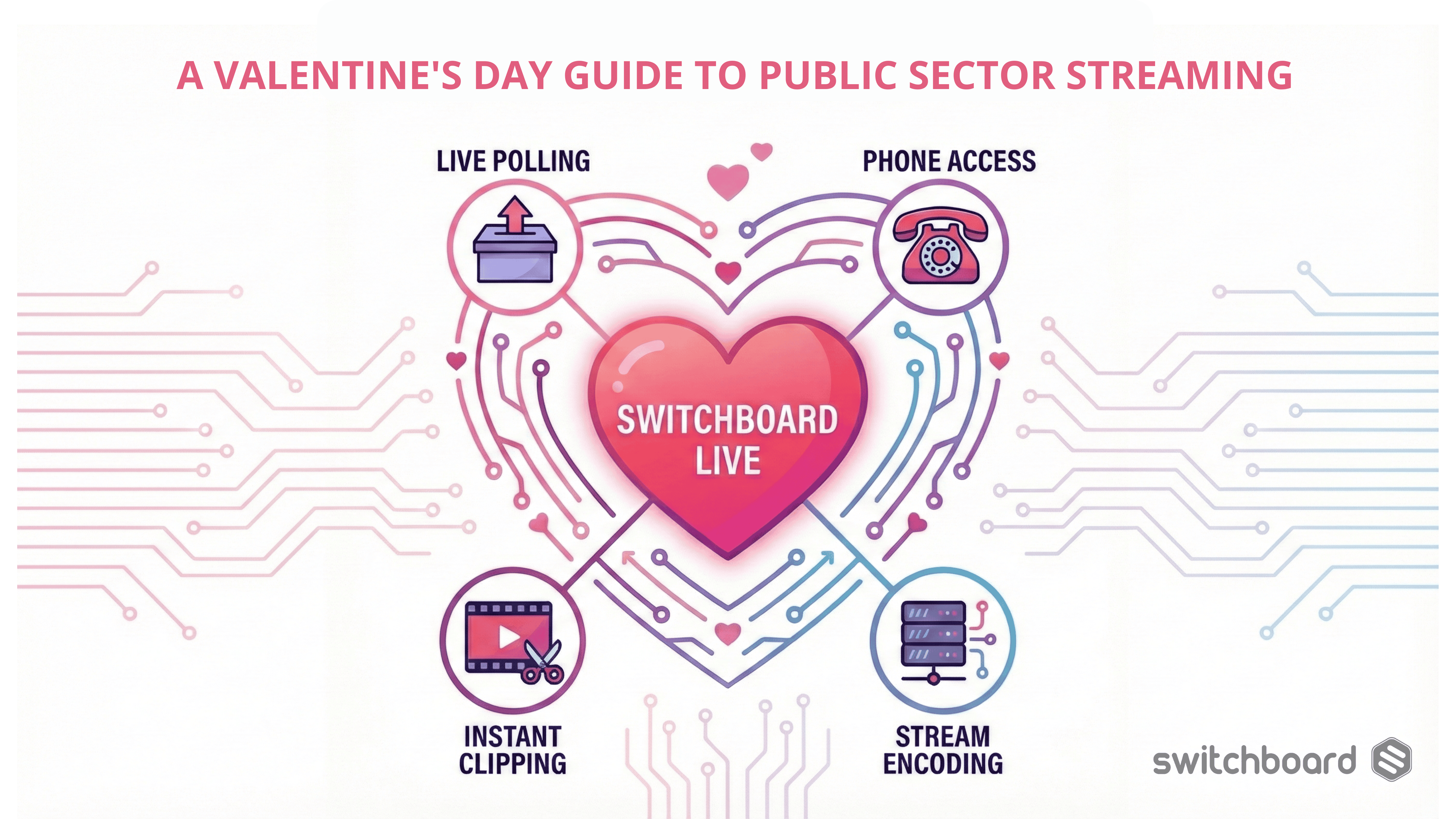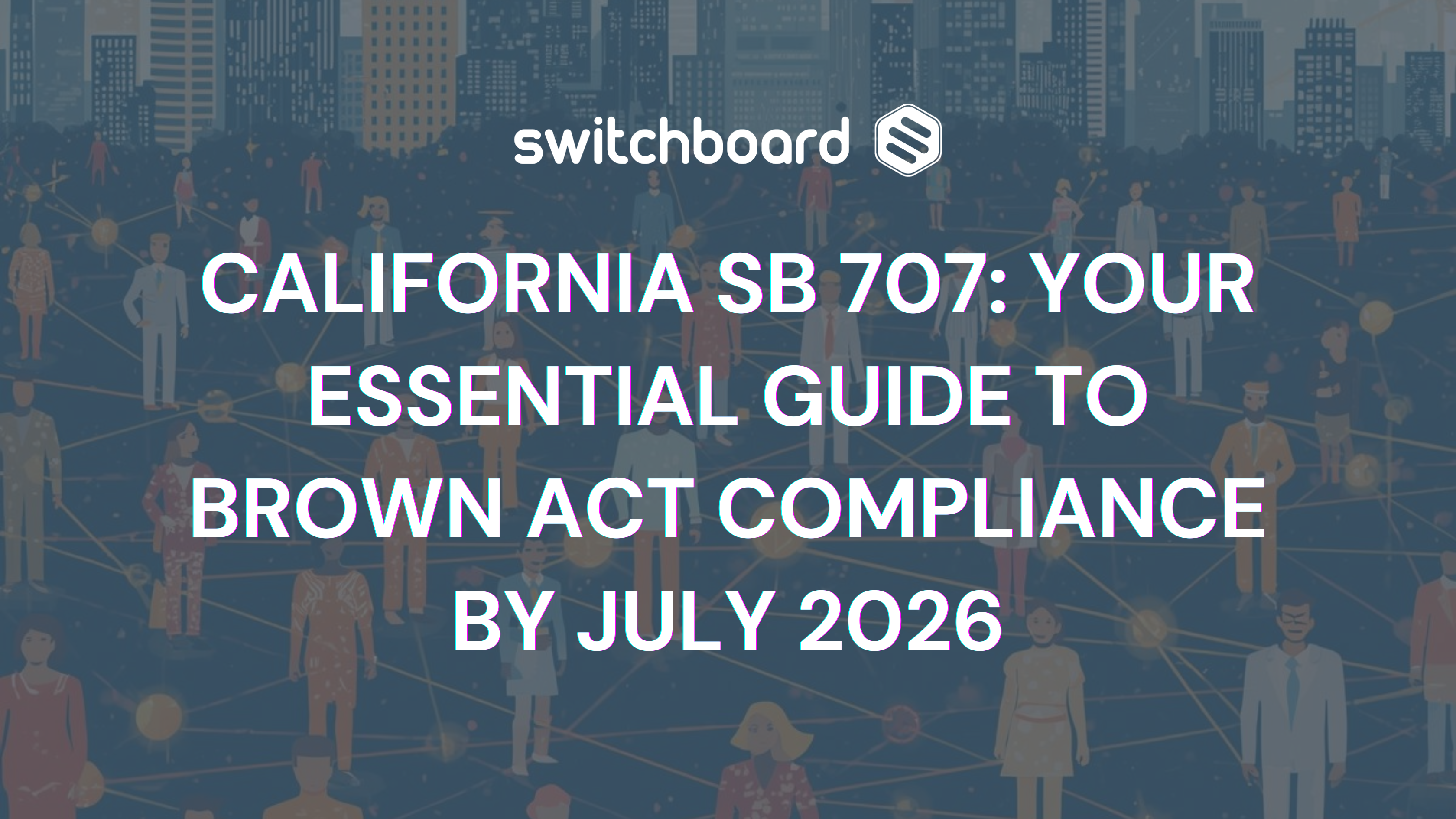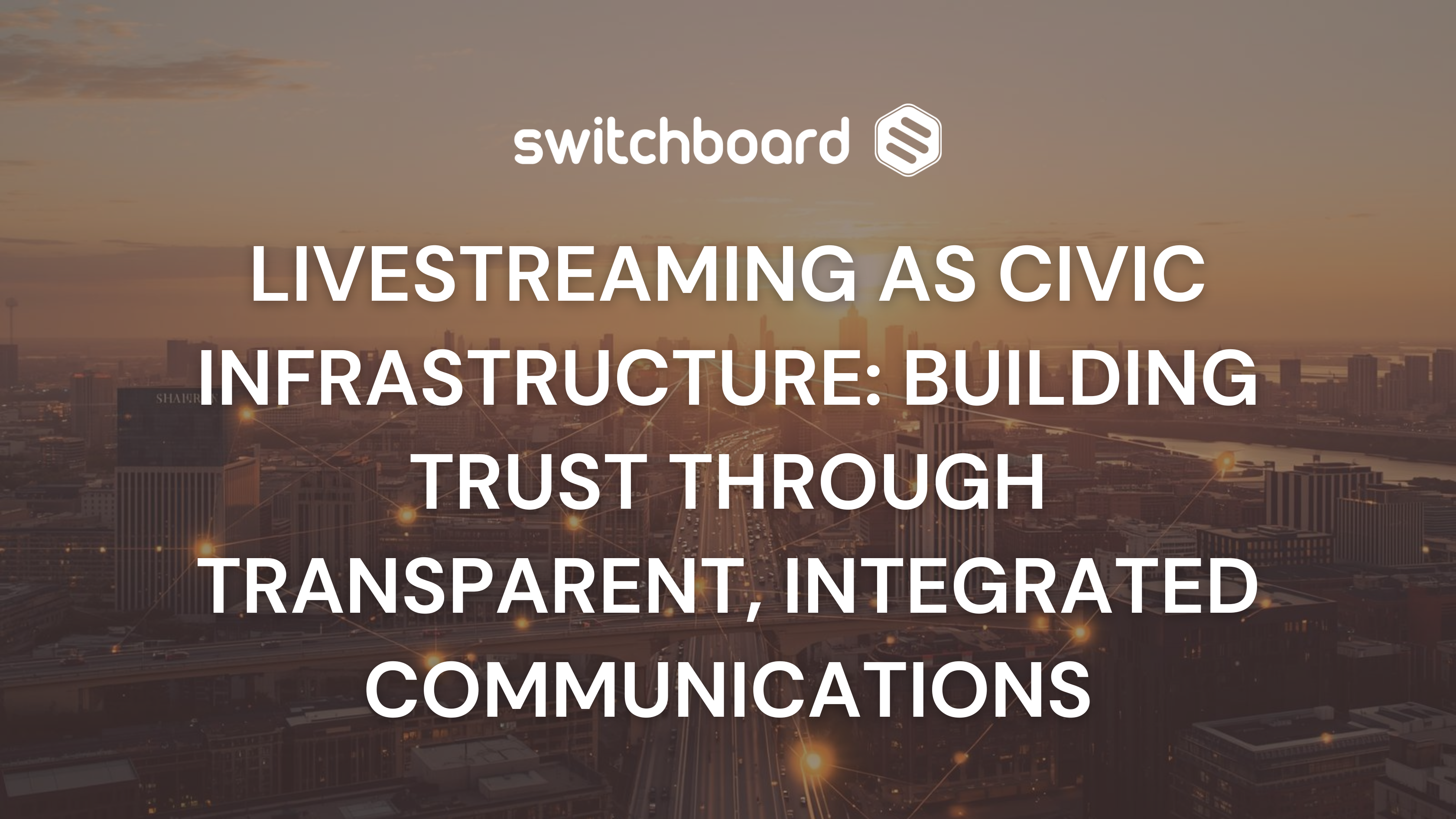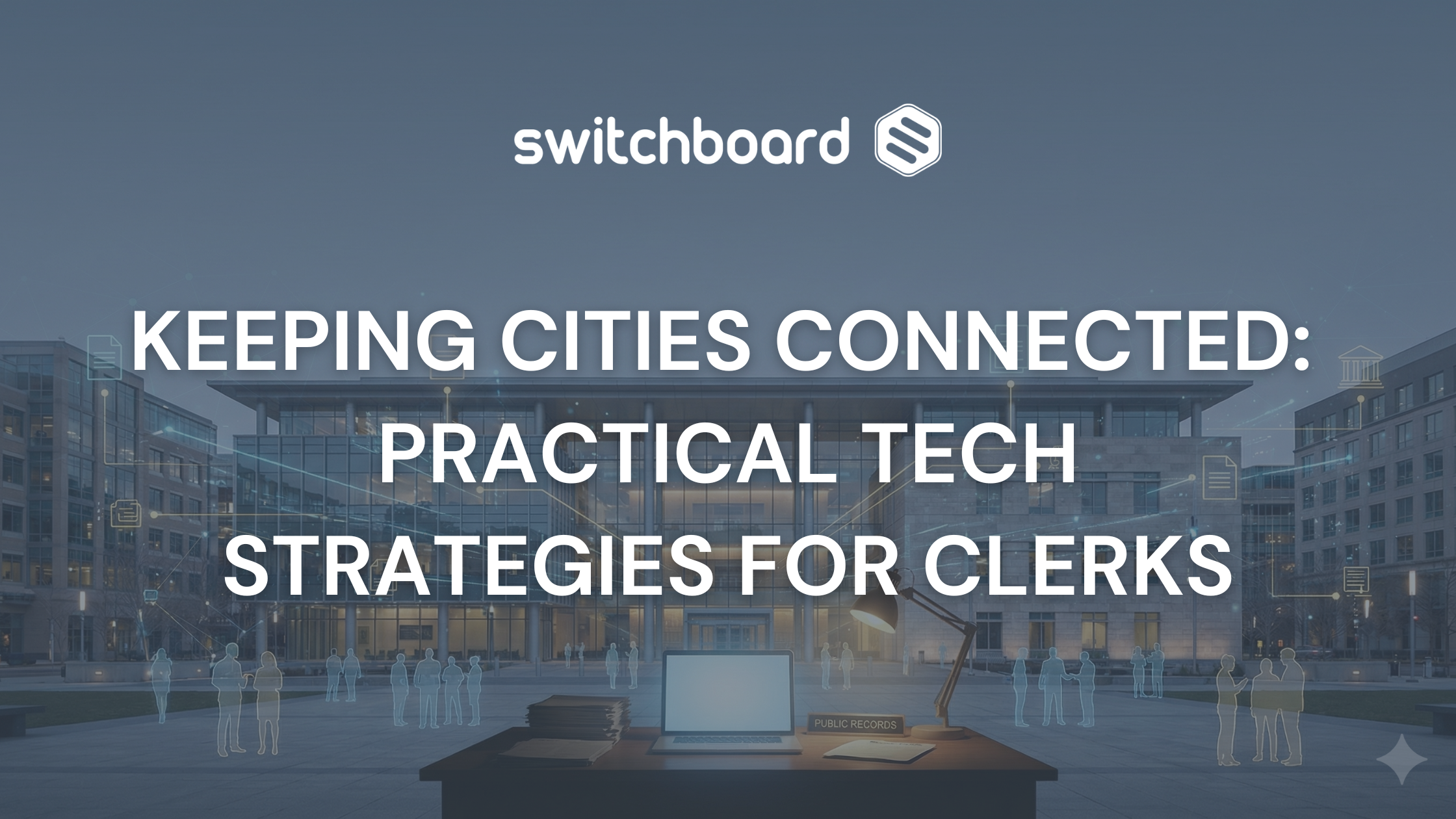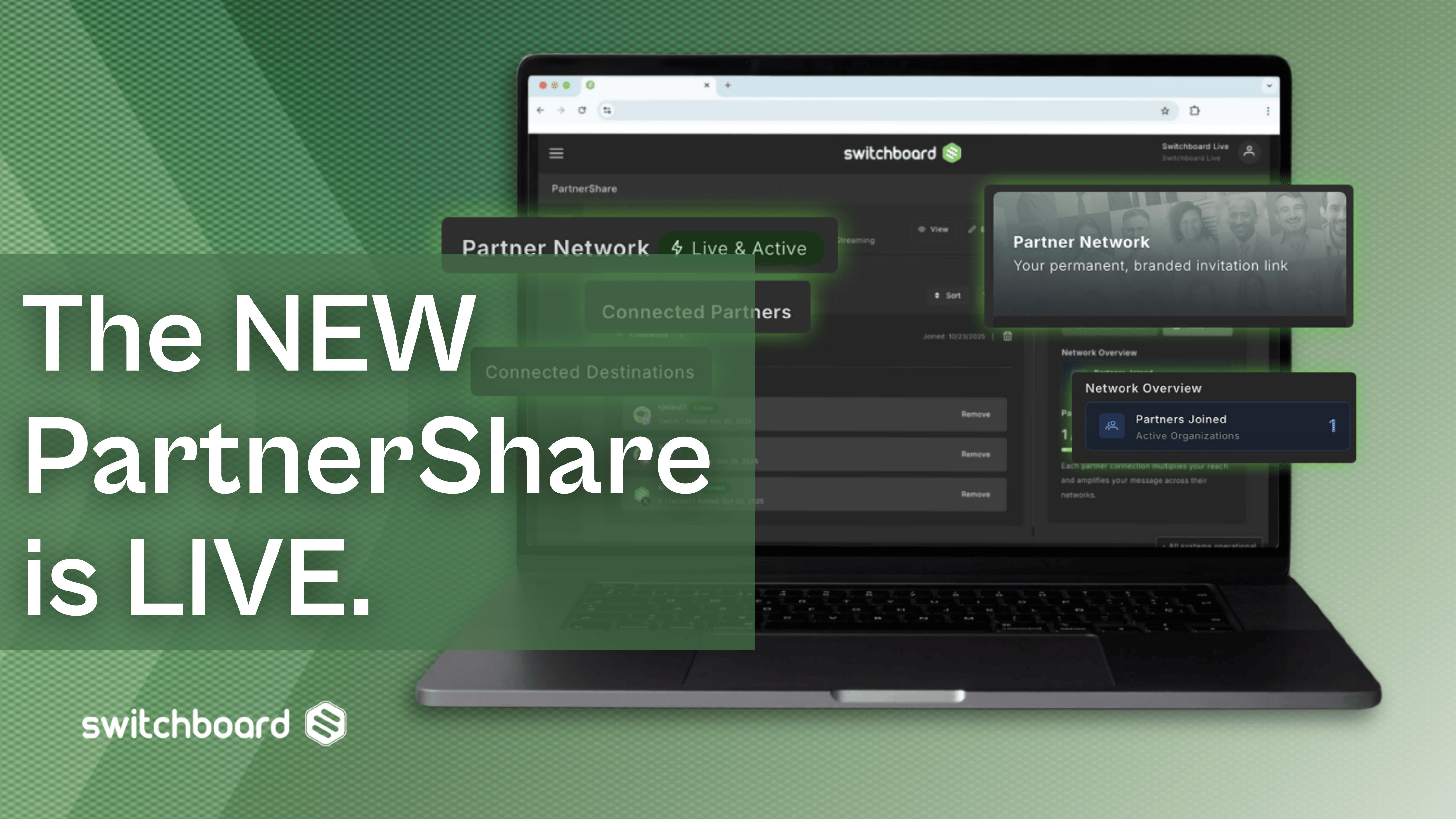As content creators pick out the equipment for serious live video streaming there are a couple of big requirements to consider. The first is the video and audio equipment they are going to use - what type of cameras, lights, microphones, etc. The second, and equally important consideration, is what type of video encoder to use.
Encoders are a key, required component in live streaming. In the most basic terms, an encoder takes the audio, video, and graphics you wish to stream and turns them into data that can be sent across the internet, perhaps to a multistreaming service such as Switchboard Live. From there, your encoded stream gets distributed to Facebook, YouTube, and any other destination you wish.
Think of an old flatbed scanner. It takes a piece of paper and turns it into a digital image on your computer screen. This is, in a very simplistic way, what an encoder does for your video. The encoder takes the images and sound and turns them into zeroes and ones, then sends them across the net.
There are two types of encoders, hardware and software. The key difference is that a hardware encoder is a piece of physical equipment you’ll need to hook up, while a software encoder is a program that runs on a computer.

Software Encoders
Software encoders are by far the most common type of encoder in use today. The reason for that is the cost, and some of the most popular software encoders are totally free.
One of the most popular software encoders is Open Broadcaster Software (OBS). This open-source software package highlights some of the advantages many software encoders provide. Not only is it free but it does more than just encode. OBS is a full multi-source switching system for video. It allows you to set up multiple cameras, add graphics, audio, and everything you need to put out a professional looking live stream. On top of all that it encodes and streams your video.

Hardware Encoders
Hardware encoders are powerful, reliable tools used by serious streamers and professional streaming facilities.
A few things to know about hardware encoders:
- They’re not cheap - most hardware encoders start at around $600 and go into the thousands of dollars
- They typically only do one thing, and that's encode and stream out across the network
- They do it incredibly well with very high reliability. In doing only one thing, hardware encoders don’t get bogged down with other applications running, in the way a computer can
- They typically do not include multiple inputs or switching capabilities; you’ll need to attach video switching/mixing equipment or software to the encoder if you wish to use multiple cameras, graphics, etc.
They may be the best bet for difficult network situations. Many encoders like Live U’s LU210 and LU220 hardware encoders can communicate on multiple networks like wi-fi, satellite, or cellular. They can use all the bandwidth from each network to give you the best possible connection to stream with.

Choosing the Right Encoder Option
Let's not fool ourselves, a software encoder requires hardware. When debating which type of encoder to go with you should consider that while good, free encoding software exists, you still need a good computer to run it on. Ideally, it should be a powerful computer and for best performance, it should be a dedicated computer. Encoding is all it should do. So, if you don't have an extra computer laying around, you may need to purchase a new one to put your free encoding software on. Keep that in mind when weighing your options.
Choosing the right encoder will help you deliver the best possible stream and the least amount of headaches. Weigh all the options and choose wisely!
Sign Up today for a free trial of Switchboard and stream live video to all of your social destinations at the same time.



